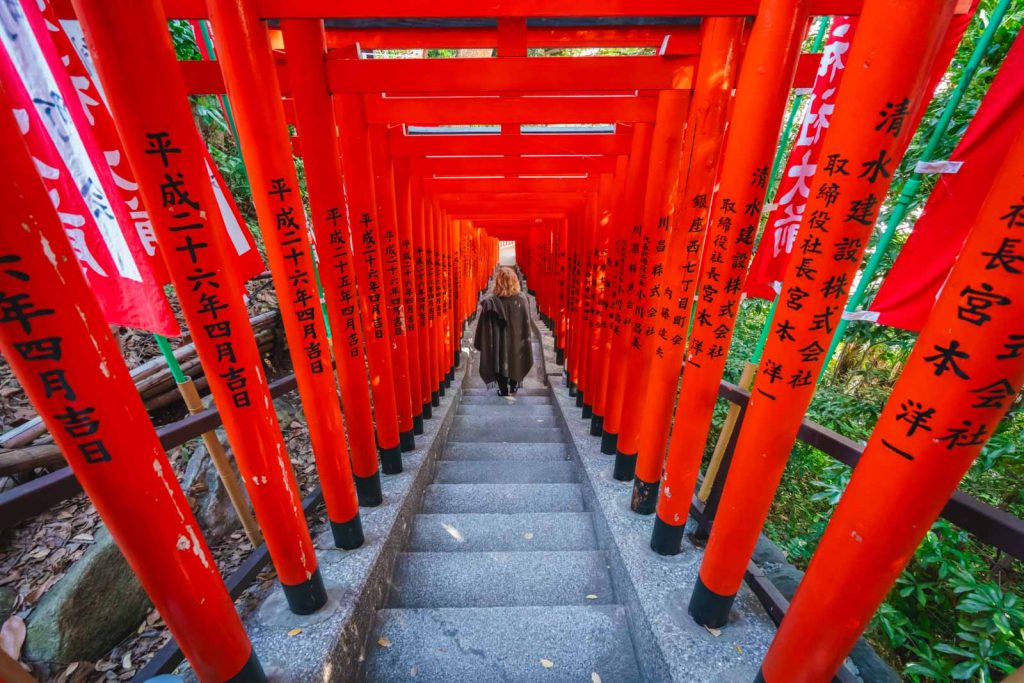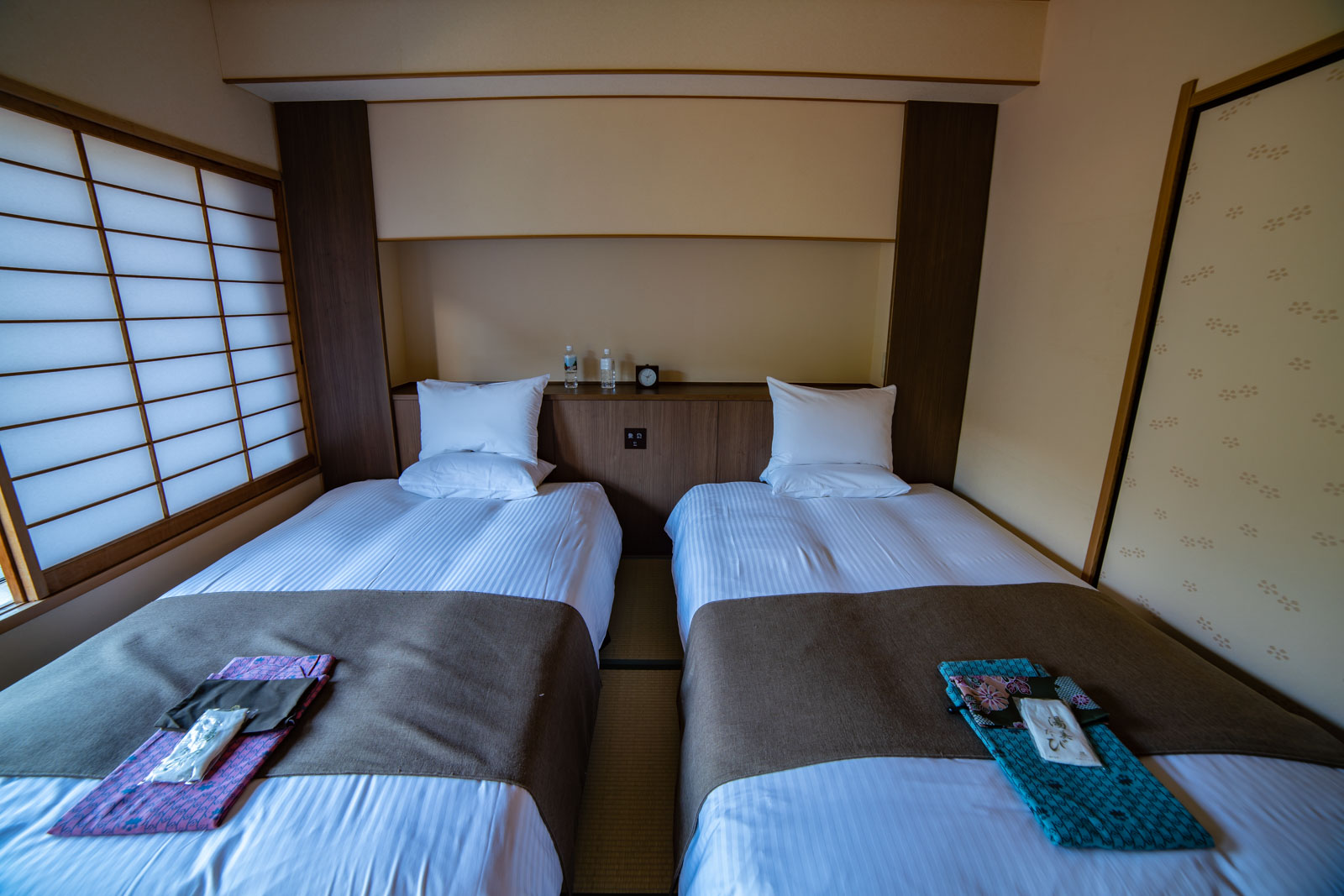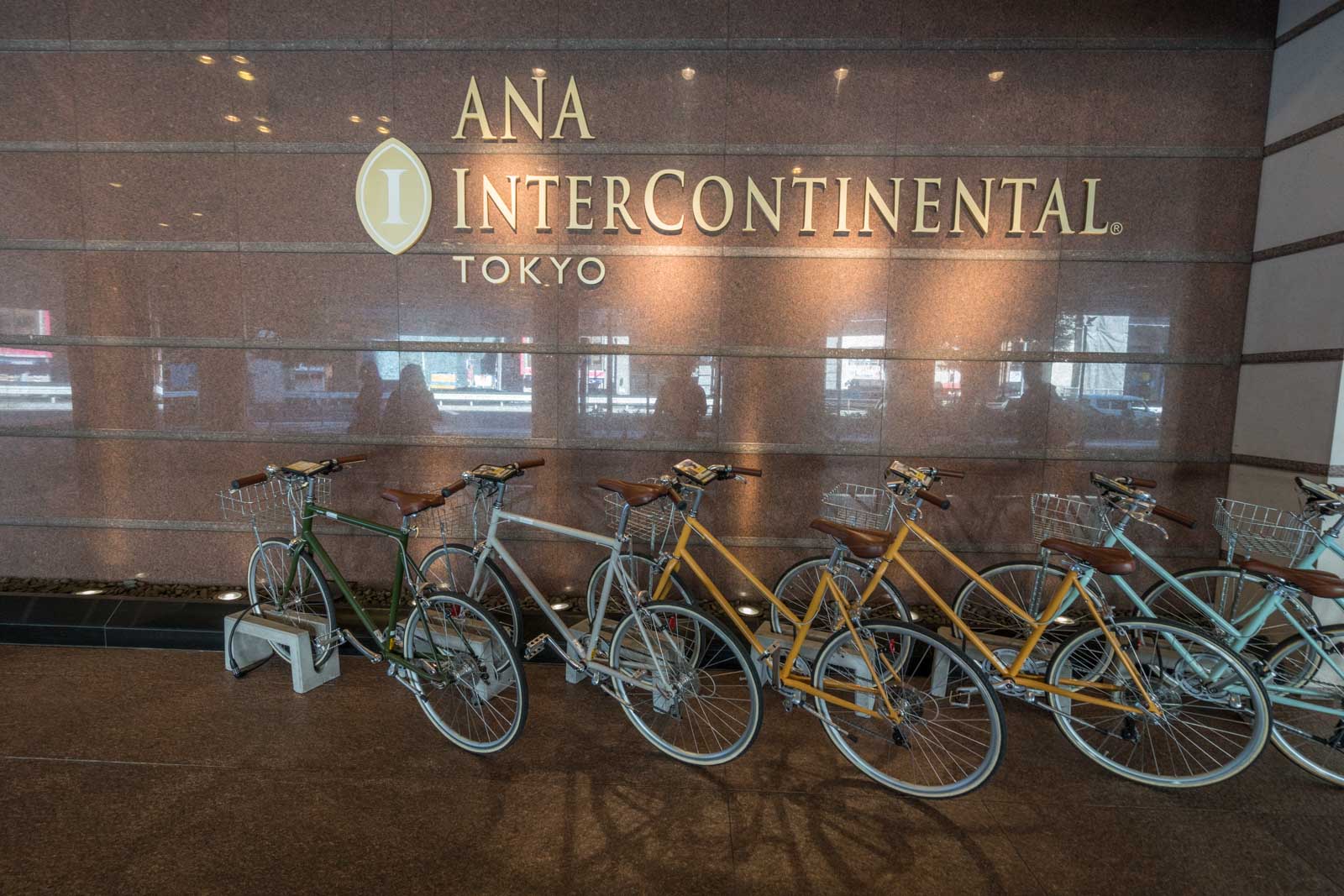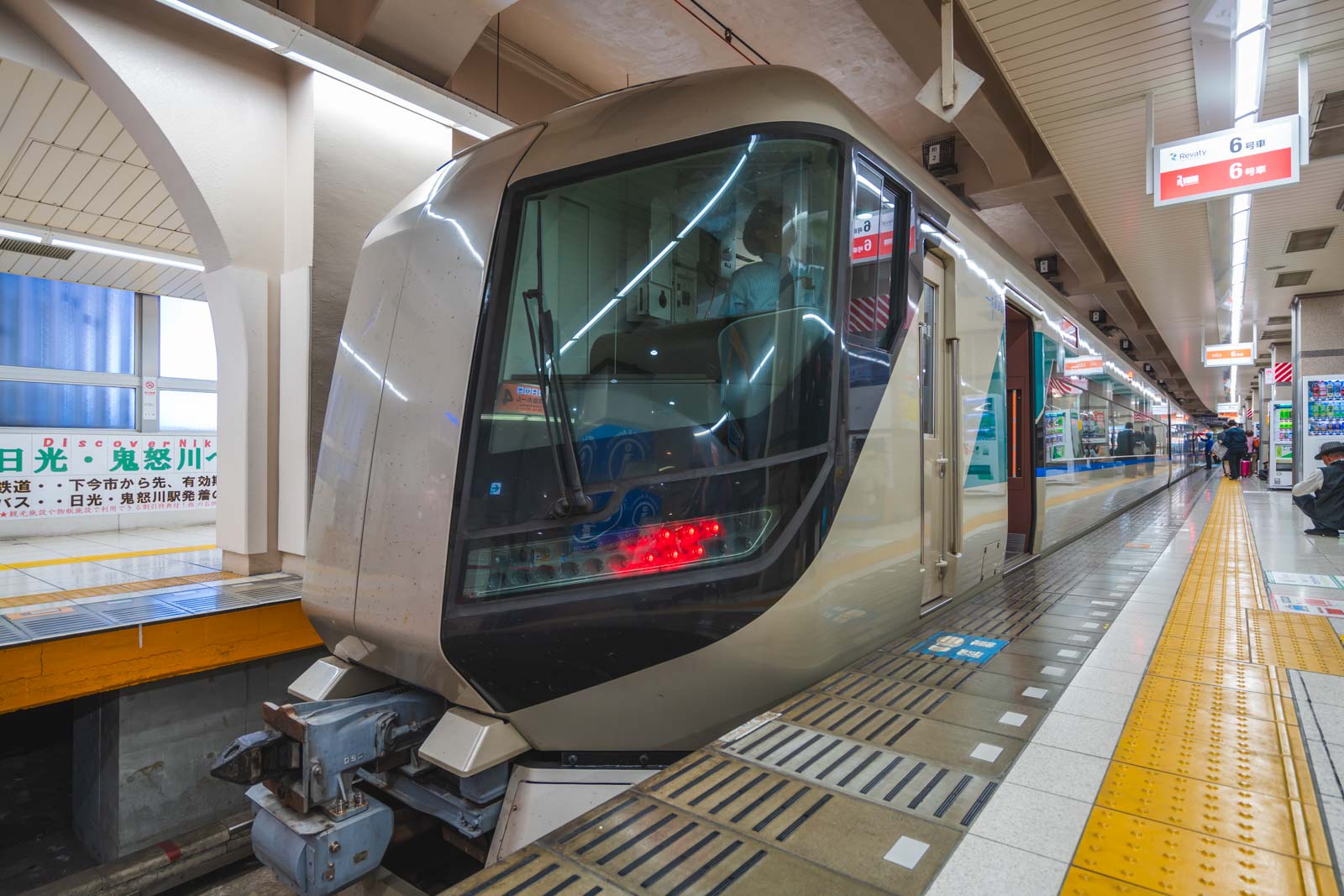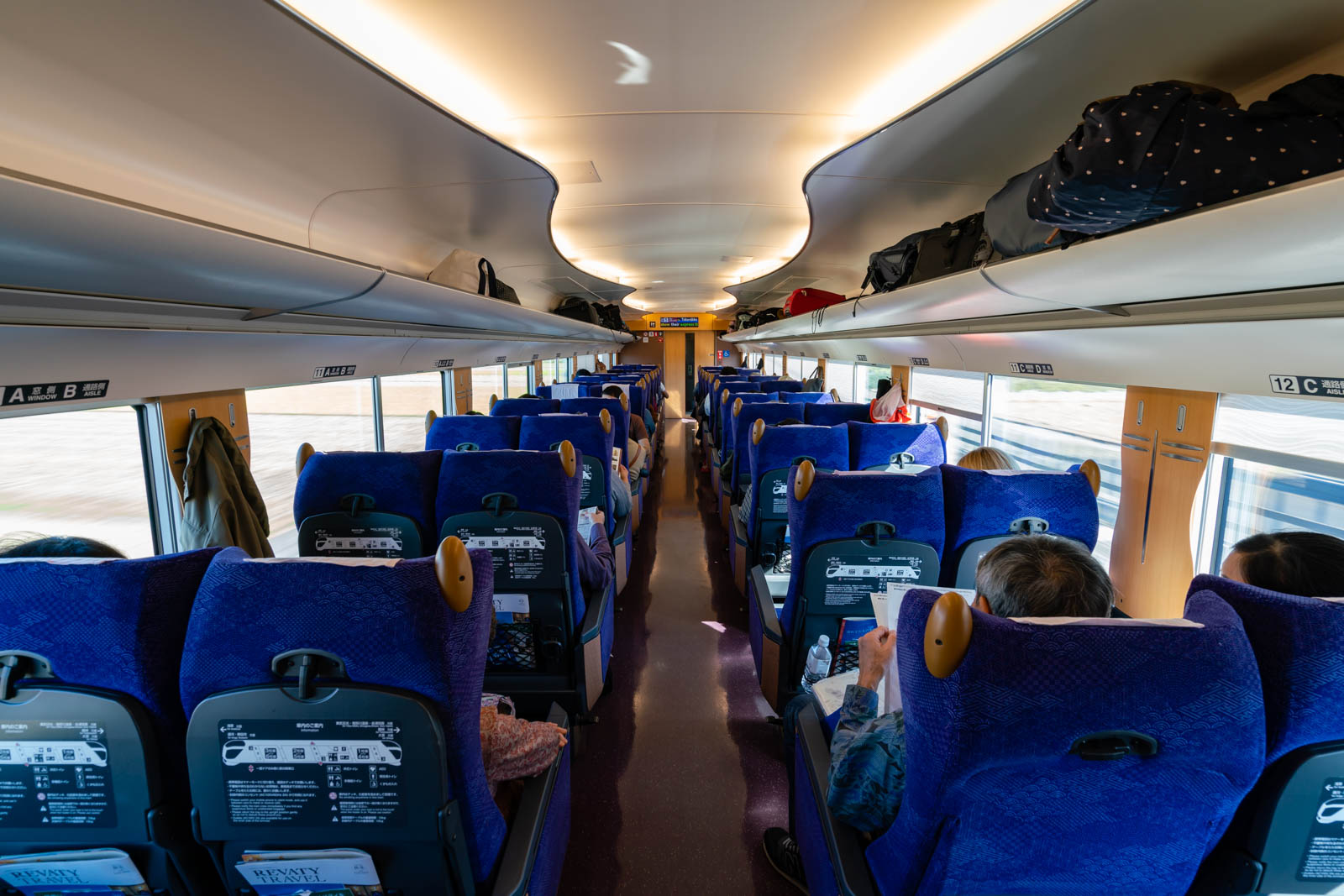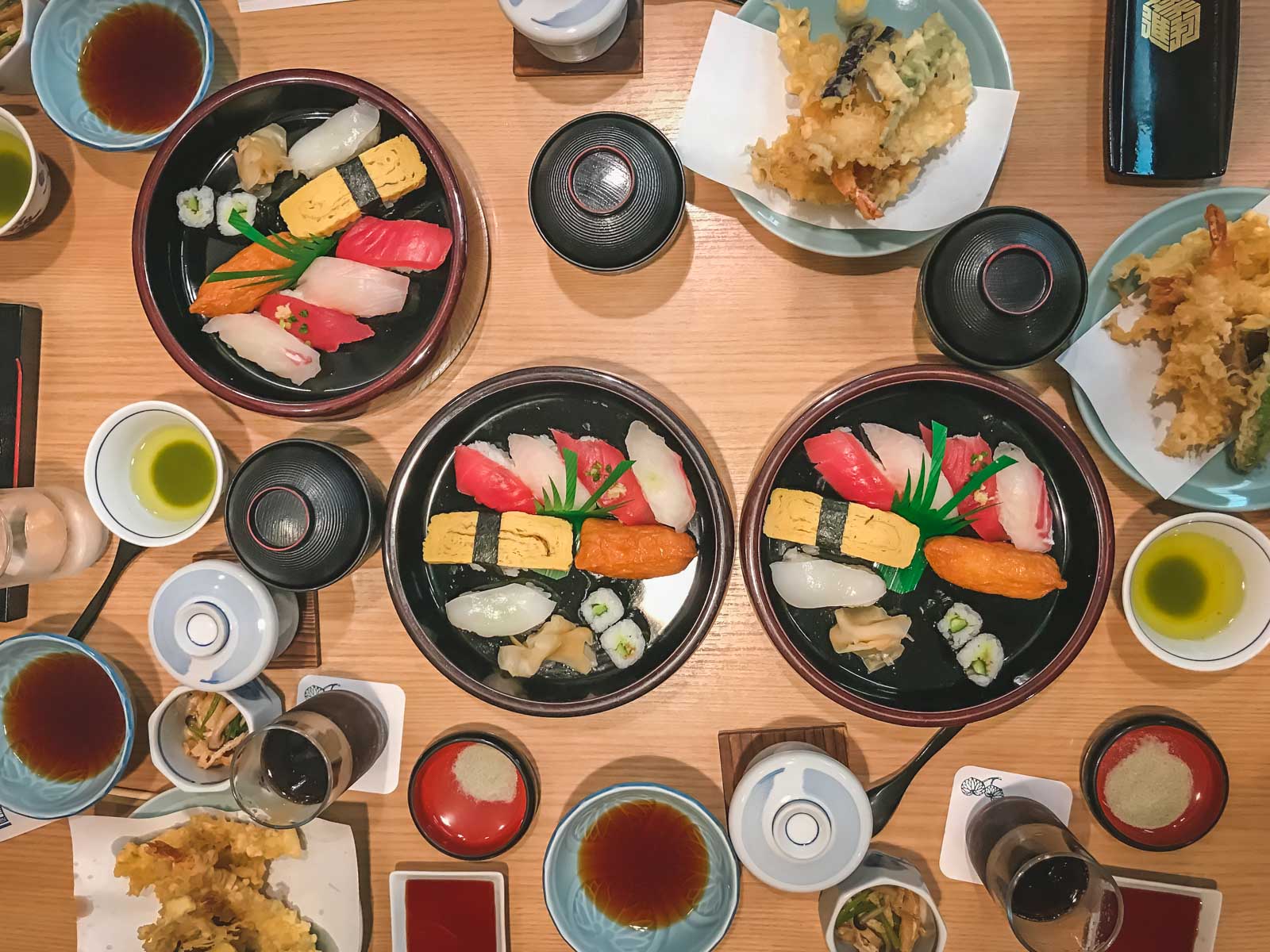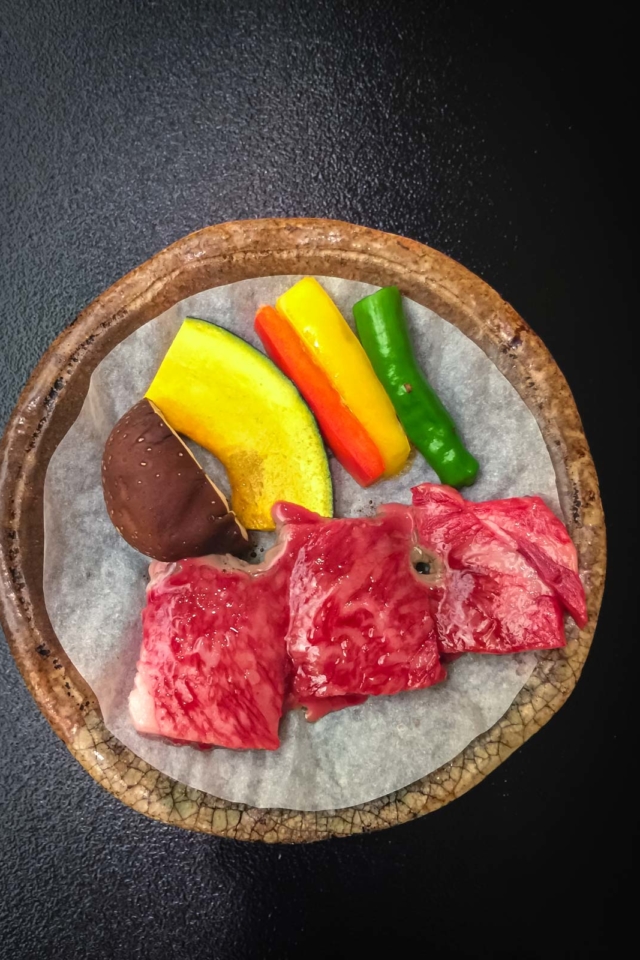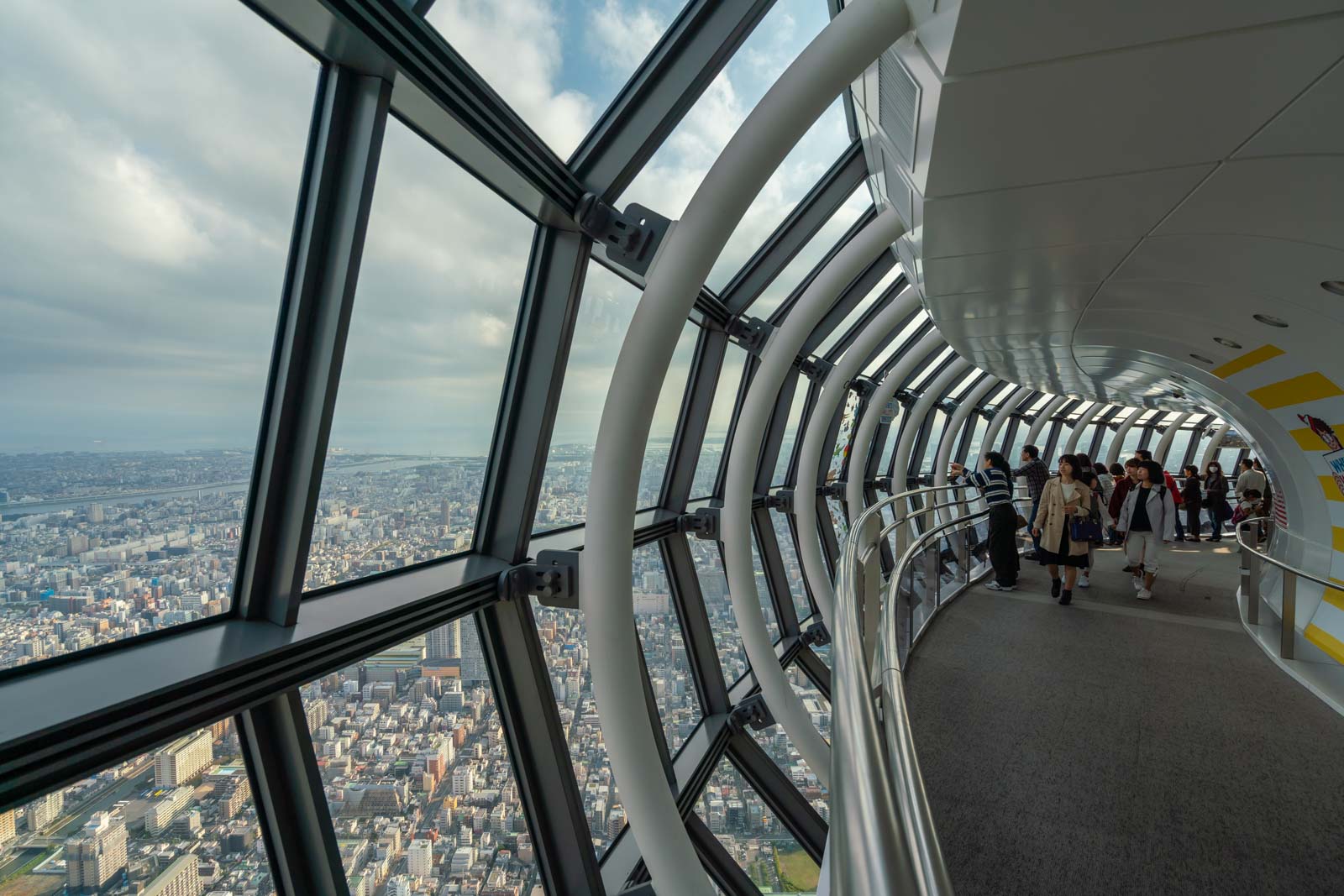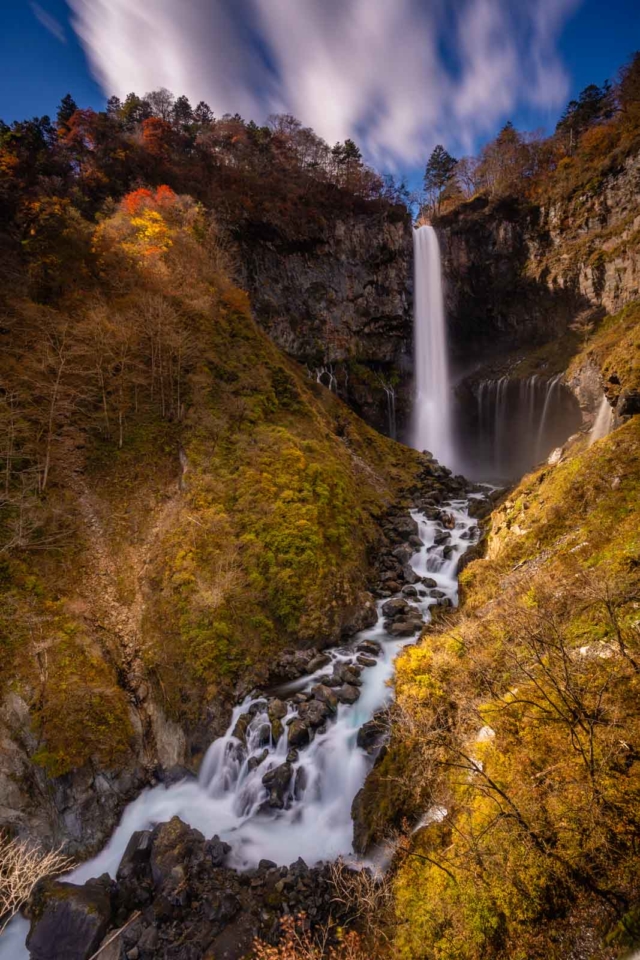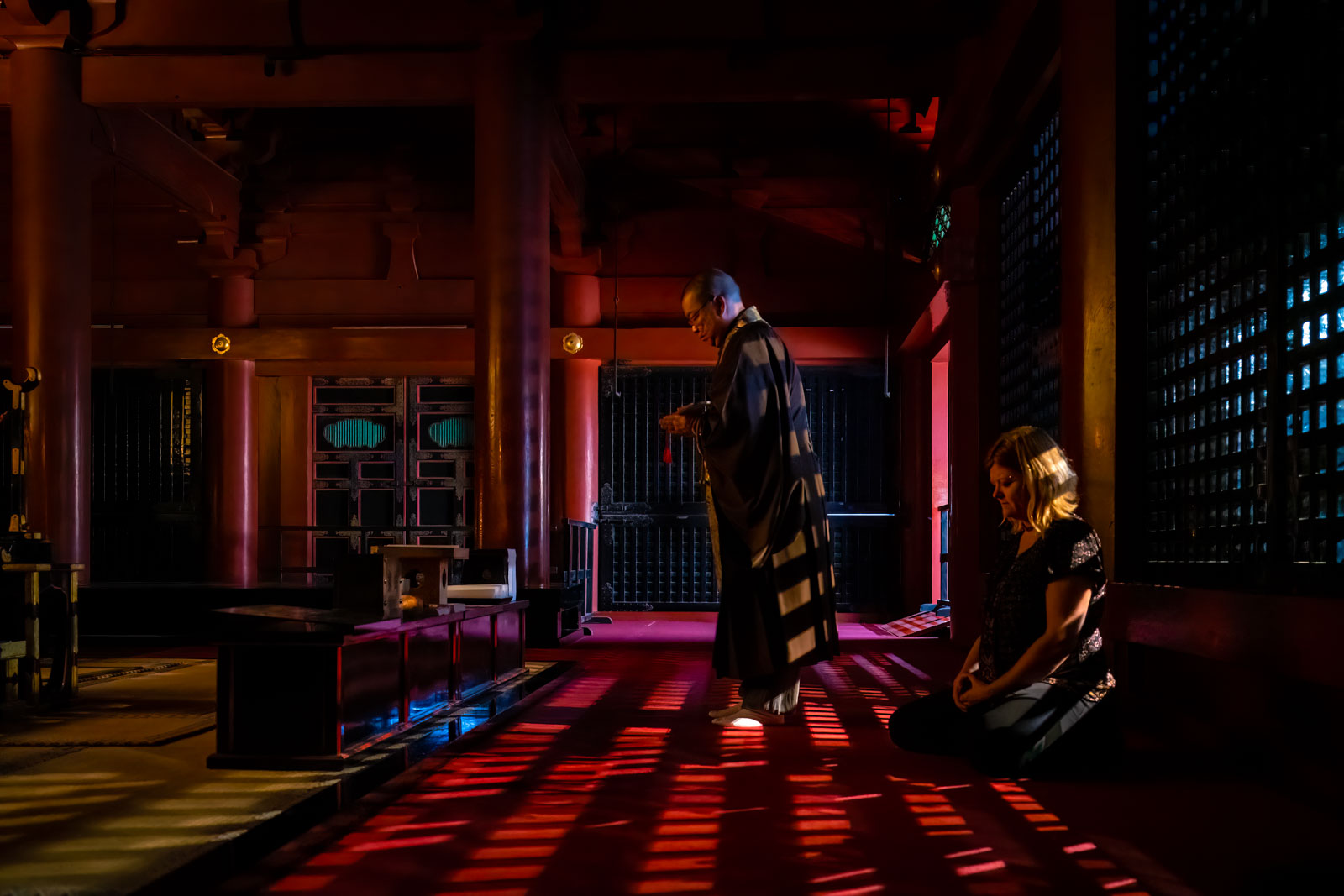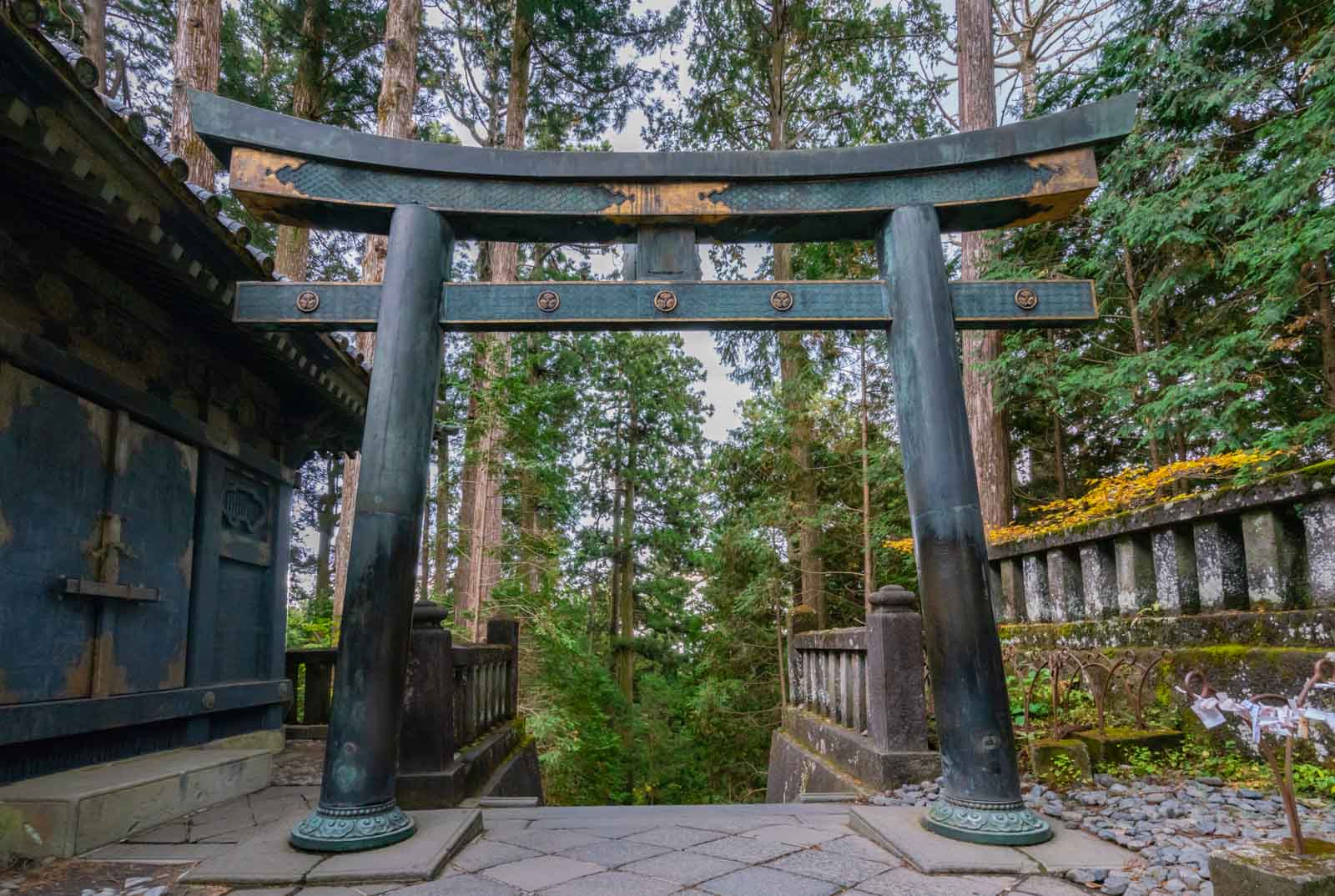Try to find out whether Japan is an expensive country to visit, and you’ll quickly find yourself in a rabbit hole without a definitive answer. There is a lot of conflicting information online about the travel costs in Japan; some swear it’s the priciest country they’ve been to, while others are raving about fantastic $5 meals.
So, is Japan really as expensive as some people say? It’s both a yes and a no. Some things in the country, like transportation, are very expensive, and others are not. The balance is there, and a trip to Japan is possible on any budget.
We have visited Japan several times and have based this article on our experiences. Here’s what you need to know when budgeting for a trip to Japan!
Is It Expensive To Visit Japan?
Yes, Dave and Deb have visited Japan a few times, but for me, Japan is a country I’ve dreamed of visiting for years. I’ve planned my perfect itinerary to a T, and I’m just waiting for the right moment in life to take off and spend two weeks in this magnificent country. As I was planning the trip, I realized that Japan isn’t really an expensive country. Sure, it costs a lot of money to get there, especially if you’re from Europe, and the cost of getting around Japan isn’t negligible, but that’s the most expensive thing about it.
Accommodation is available in every price range, and you can spend as little as $16 for a bed in a hostel or splurge $650 for a night in a five-star hotel. Eating out in Japan can be super cheap or wildly expensive, depending on whether you’re munching ramen on the go or splurging for Kobe beef. The country can cater to anyone, and no matter your travel style and personal preferences, you can have a good time there.
The exchange rate is approximately 152 Yen to $1, so don’t be scared to see many zeros on price tags in Japan.
Cost of Accommodation
Accommodation in Japan is surprisingly affordable and there are hotels for everyone. Beds range from $16 per night in cheap hostels, up to $4,000 for a room in the best luxury hotels, with a myriad of options in between.
Budget travelers will have plenty of options in Japan, but I have to mention capsule hotels as one of the best options for a cheap stay. The capsule hotel is a Japanese invention and a great alternative to hostel dormitories. Nine Hours Hamamatsucho is a good option for a Tokyo stay.
Travelers with a mid-range budget will be spoiled for choice in Japan. Stay in three-star and four-star hotels in big cities or quaint ryokans in smaller towns, like the Ryokan Inakatei in Kyoto. Most mid-range hotels in Japan include breakfast in the nightly rate and offer private rooms with ensuite bathrooms.
Luxury accommodations in Japan are abundant, ranging from high-end chain hotels, like the Ritz Carlton in Osaka, to fantastic luxury ryokans with private onsens. If you want to be pampered during your trip to Japan, you will have plenty of options for luxury stays.
Keep in mind that you can get much better value for money if you stay outside the city center. A small hotel in Tokyo’s Shibuya can cost as much as a mid-range hotel in Itabashi. Stay outside the city center to get more bang for your buck, especially if you’ve decided to get the JR Pass for unlimited travel on local transportation.
Budget:
Hostels and capsule hotels are abundant in Japan, especially in the bigger cities. The nightly rate ranges from $16 to $50 per night per person for dorm-like rooms, while double rooms with private bathrooms have a nightly rate of $50 to $100. That’s a budget of just $100-300 for a week (6 nights), usually including breakfast.
Mid-Range:
Mid-range options will run you about $50-100 per night per person. Double rooms in four-star hotels in the center of Tokyo go for $120-200 per night, and many of them are business hotels with nice facilities. In Kyoto, you can book one room for two at a five-star hotel for $150-200, and the prices drop even more if you look at accommodations outside the tourist hotspots. That’s a budget of just $300-600, usually on the lower end, for a week trip.
Luxury:
Luxury hotels start at roughly $150 per person for a nightly stay in the cheaper cities. In Tokyo, five-star hotels are pricier, with double rooms starting at $350 per night. That’s the lower end for five-star hotels in the capital, and there are plenty of hotels where you can spend more than $1,000 for just one night.
Cost of Transportation
Japan is such a fascinating country that it’s an absolute shame to travel there and stay in only one place. You should visit at least two or three cities when you’re there, and the more destinations you can squeeze into your itinerary, the better.
I reckon everyone knows that trains are the best way of getting around Japan. The high-speed bullet trains that reach speeds of more than 300 km/h have become world famous, and are excellent for quickly traveling from one city to another. The only downside is the cost, as they are very expensive.
I was actually surprised at the cost of high-speed trains in Japan, especially since the inner-city trains and buses are relatively inexpensive. It’s even possible you’ll spend more on transportation than you would on accommodation, which is insane to me. But it would be absolutely worth it because you’d get to discover a good chunk of this fabulous country.
The best way to save money on train travel in Japan is to get the Japan Rail Pass. The starting cost of the pass for adults is:
7 days for $341
14 days for $554
21 days for $692
A children’s pass is cheaper, but there’s also a first-class pass that’s even more expensive. The JR Pass includes local trains, express trains, some bus lines, and shinkansen, and even partially covers the Nozomi and Mizuho lines. It’s a lot of money, and I wasn’t joking when I said that it could be more expensive than accommodation; two weeks in a hostel or a capsule hotel can be booked for as little as $300, which is nearly half of the cost of the two-week pass.
The ride from Tokyo to Kyoto is roughly two and a half hours by regular Shinkansen (not the Nozomi line) and costs around $88 one way. That’s almost $180 just on transportation for a day trip. If you also want to visit Nara, Hiroshima, Kobe, Osaka, and Nagoya, you can see just how much the pass is worth getting.
Cost of Food
Eating out is generally very cheap in Japan, and you can get by with a $25 budget per day, even if you eat out every single day. There are plenty of street food stalls and family-owned hole-in-the-wall restaurants where you can get a surprisingly good meal for as little as $5, which is mindblowing to me.
On the other end of the spectrum, there are just as many fine-dining establishments where you can splurge for delicious sushi or indulge in Kobe beef. Whether you’re able to spend $15 or $150 per day on food in Japan, you won’t be hungry during your trip.
One important thing to note is that grocery shopping and preparing meals at the accommodation are not really cheap in Japan. The cuisine in Japan is very different from that in Europe and the United States and uses a lot of ingredients that aren’t common elsewhere. If you don’t know how to cook these foods, you’ll be forced to buy imported foods, which are generally quite pricey. So, grocery shopping can sometimes be more expensive than eating out – it’s counterintuitive, I know, but I’d just run with it and eat noodles three times a day.
You can eat out every day in Japan, three times a day, with a low budget of $150 per week. I would say that it would be much easier to find cheap but good restaurants in bigger cities like Tokyo because they offer a wider variety of such establishments.
One thing I will note is that it’s best to avoid restaurants that have huge signs in English to attract visitors. These are usually tourist traps that are twice as expensive as the really good local restaurants, but the food won’t be anywhere near as good.
For a mid-range budget, expect to spend up to $20 per meal, not including breakfast, which is cheaper. So, roughly $50 per day for a weekly budget of $350, but keep in mind that you’d likely pay less than $20 for most meals.
Even the high-end restaurants are not that expensive compared to those in the US, as you can eat some of the most decadent food for under $100. You can eat a hearty Galbi Gukbap at one of the best-rated restaurants in Tokyo for just $10. Kobe beef is really the most expensive thing to eat in Japan, and unless you’re having it for breakfast, lunch, and dinner, you can splurge on fancier eateries with a budget of $500 per week.
Is it worth it to splurge on Kobe beef? You might be wondering. I think it is, and I’m absolutely planning to do it when I get the chance. If you like eating steak, there’s nothing like it; it’s a delicacy, and even if you are able to eat it elsewhere in the world, it will never taste as good as it does in Kobe, Japan.
Cost of Activities
Things to do in Japan are abundant and surprisingly affordable. Just walking around the cities is a wonderful experience and a fun thing to do for free. A guided tour of Tokyo will cost you $60-120, but it’s important to note that you can explore the city on your own if you want. Sit at a cafe and watch people at the Shibuya crossing, visit all the famous Shinto shrines and Buddhist temples, and check out all the quirky shops in Harajuku – none of those things cost a dime.
Even just walking around the train stations in Tokyo will be a new experience that can easily kill an afternoon. They’re enormous, for one, and it will take a while to figure out where you need to go if you want to catch a train. But with countless restaurants and a different convenience store every couple of steps, it’s like exploring a tiny city within a much bigger one.
You can climb Mount Fuji for less than $15, and spend an entire day at Disneyland Tokyo or Universal Studios in Osaka for $65 at most. Then head to a train station and board a bullet train to visit Nara to watch the deer roam around the vast public park full of cherry blossom trees.
Head to Hiroshima to visit the Peace Memorial Park and Museum – the park is free to visit, and the entrance fee for the museum is 200 Yen, which is about $1.3. Even the fantastic Nijo Castle costs less than $10 to tour, while the historic Osaka Castle is just $4. You can even tour the massive Toyota museum in Nagoya for just under $7, and you’ll get to see everything from old-timer cars to robots.
For budget travelers, anywhere from $20-40 per day is enough for activities, not including shopping. With so many free things to do throughout Japan, you can do one or two cheap paid activities per day, and stick to free ones for the rest.
Allocated a budget of $40-80, and you’ll be able to do pretty much whatever you want in Japan, plus have some leftover cash for shopping. And if you can spend $80+ per day, it’s plenty of money for sightseeing, tours, and shopping.
A Budget for 1 Week in Japan
A general budget for one week in Japan is about $2,000, so around $285 per day for flights, accommodation, transportation, and activities. I’ll break it down for you, but I want to note that that’s what a mid-range budget for a week in Japan would be for one person. Also, keep in mind that, if you’re traveling with someone else, you’ll spend less money on accommodation as it’s cheaper to split the cost of a double room.
$700-1000 for return flights
$300-600 for mid-range hotels (six nights with breakfast)
$250 for food ($35 per day)
$341 for the JRl Pass
On the lower end, that’s just under $1,600, leaving $400 for a week’s worth of fun in Japan. With a budget of roughly $60 per day, you can explore loads – do a couple of cheap attractions in one day, and you’ll have plenty left over the next day for something more expensive like Universal Studios or Disneyland.
On the higher end, that’s around $2,200 without activities, so around $2,500 for a week trip. And that’s if you splurge on good food every day, and stay at a four-star or even five-star hotel in central Tokyo every night.
It’s possible to do Japan in a week for about $1,500. Find a cheap ho(s)tel for about $150 and cut the budget for food to $150, leaving another $150 for activities. You can explore a lot with that amount of money, but you likely won’t be able to visit the most expensive tourist attractions.
Also, you can save some money on flights if you look for deals and travel in the off-season; I’ve seen return flights from London and San Francisco for roughly $600, so it all depends on where you’re traveling from.
A Budget for 2 Weeks in Japan
Two weeks in Japan is my dream scenario, and I’ve figured out that it can easily be done for $3,000. That’s roughly $200 per day, including flights, transportation, accommodation, food, activities, and some light shopping!
A Detailed Breakdown:
$554 for the train pass
Around $450 for budget hotels in big cities and mid-range hotels in smaller towns (this three-star Tokyo hotel is really cheap)
Roughly $750 for a round-trip flight from Rome to Tokyo
$350 for food, which is a budget of $25 per day (breakfast is included in the hotel stay)
That leaves $900 for shopping and sightseeing activities, which is $65 daily. That’s plenty of money to have heaps of fun in Japan; it’s the exact amount you need for the most expensive ticket to Disneyland Tokyo, which will keep you busy the entire day. Or enough money to spend an afternoon in an onsen, explore a museum, and buy a few souvenirs.
That’s my take on a budget version of two weeks in Japan. If you can find cheaper flights and you don’t mind staying in hostels with shared bathrooms, you can save about $150 on accommodation and cut the entertainment budget in half. Overall, it is possible to do two weeks in Japan for roughly $2,500, but you’d have to watch every cent you spend.
Anywhere from $3,000 to 5,000 per person is a mid-range budget with better hotels and meals at fancier restaurants, while a budget over $5,000 for two weeks ($350+ per day) per person is enough for a luxury trip to Japan. Of course, you could book a hotel that’s $1,000 per night and easily spend more than $15,000 on the entire trip, but it’s worth noting that you can experience some luxury in Japan for a lot less.
Is Japan Expensive? FAQs
Is Japan An Expensive Country To Visit?
Japan has a reputation for being expensive to visit. But, in truth, the short answer is no; Japan is not really an expensive country to visit. It’s expensive to get there, and local transportation is pricey, but everything else is very affordable.
How Much Would A Meal Cost In Japan?
The average cost for a meal in Japan is $10-15. You can find cheap street food for as low as $5 as easily as you can spend $200+ for a premium cut of Kobe beef.
Is Japan Expensive To Americans?
The cost of living in Japan is significantly lower than in the US, so It is generally not expensive for Americans. Eating out and activities are also significantly cheaper in Japan.
Is Food Cheaper in Japan Than the USA?
Yes, food is cheaper in Japan than in the US. There are some exceptions, but it is generally much more affordable to eat out in Japan than in the United States.

